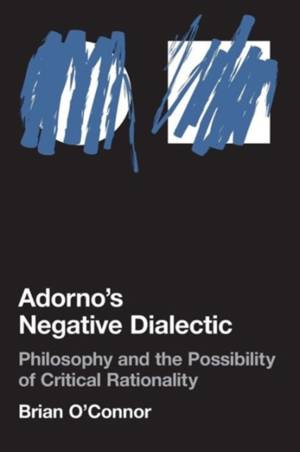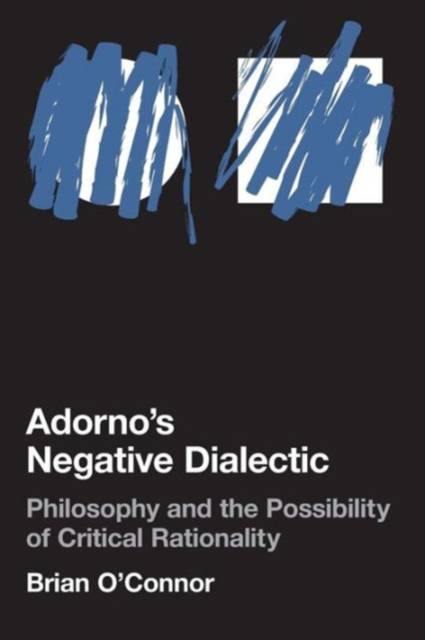
- Retrait gratuit dans votre magasin Club
- 7.000.000 titres dans notre catalogue
- Payer en toute sécurité
- Toujours un magasin près de chez vous
- Retrait gratuit dans votre magasin Club
- 7.000.0000 titres dans notre catalogue
- Payer en toute sécurité
- Toujours un magasin près de chez vous
22,45 €
+ 44 points
Description
The purely philosophical concerns of Theodor W. Adorno's negative dialectic would seem to be far removed from the concreteness of critical theory; Adorno's philosophy considers perhaps the most traditional subject of "pure" philosophy, the structure of experience, whereas critical theory examines specific aspects of society. But, as Brian O'Connor demonstrates in this highly original interpretation of Adorno's philosophy, the negative dialectic can be seen as the theoretical foundation of the reflexivity or critical rationality required by critical theory. Adorno, O'Connor argues, is committed to the "concretion" of philosophy: his thesis of nonidentity attempts to show that reality is not reducible to appearances. This lays the foundation for the applied "concrete" critique of appearances that is essential to the possibility of critical theory. To explicate the context in which Adorno's philosophy operates--the tradition of modern German philosophy, from Kant to Heidegger--O'Connor examines in detail the ideas of these philosophers as well as Adorno's self-defining differences with them. O'Connor discusses Georg Lucà cs and the influence of his "protocritical theory" on Adorno's thought; the elements of Kant's and Hegel's German idealism appropriated by Adorno for his theory of subject-object mediation; the priority of the object and the agency of the subject in Adorno's epistemology; and Adorno's important critiques of Kant and the phenomenology of Heidegger and Husserl, critiques that both illuminate Adorno's key concepts and reveal his construction of critical theory through an engagement with the problems of philosophy.
Spécifications
Parties prenantes
- Auteur(s) :
- Editeur:
Contenu
- Nombre de pages :
- 224
- Langue:
- Anglais
- Collection :
Caractéristiques
- EAN:
- 9780262651080
- Date de parution :
- 12-08-05
- Format:
- Livre broché
- Format numérique:
- Trade paperback (VS)
- Dimensions :
- 155 mm x 230 mm
- Poids :
- 312 g

Les avis
Nous publions uniquement les avis qui respectent les conditions requises. Consultez nos conditions pour les avis.






